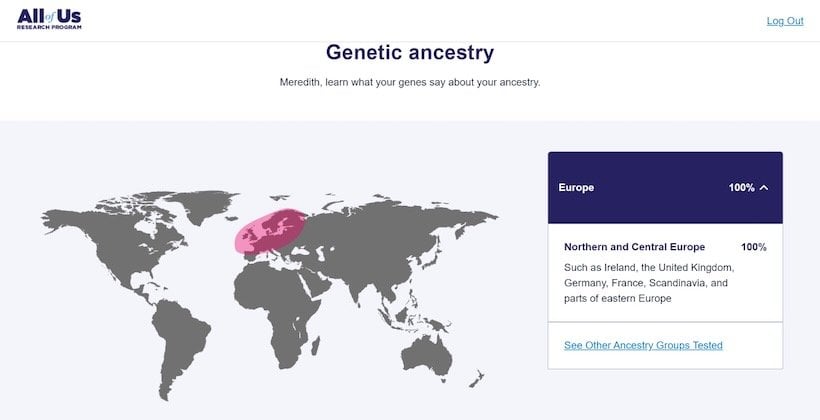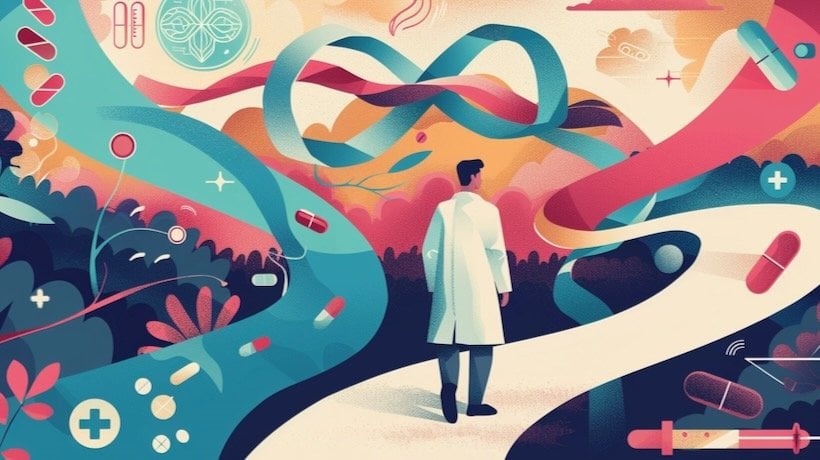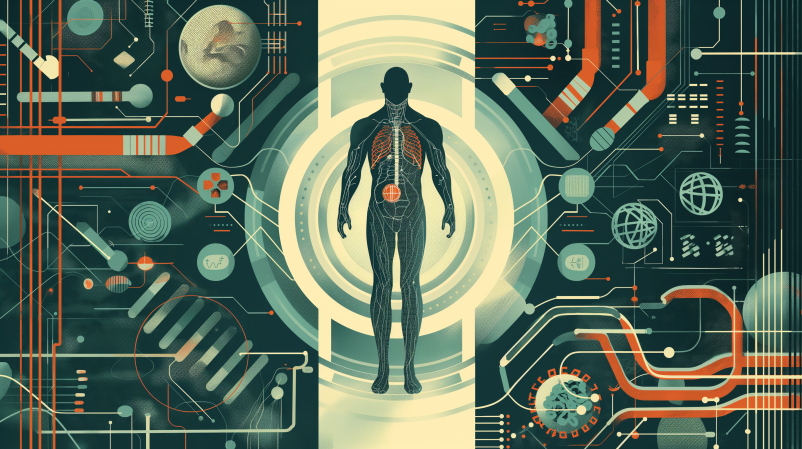A sizable new data release from the National Institutes of Health’s million-genome project, All of Us, offers a glimpse into how prioritizing diversity can improve biological research and personalized healthcare.
Genome-based data is helping scientists better understand how humans are wired, and those new insights have already led to improvements in how doctors can treat patients. This falls under the umbrella of precision medicine: moving past a one-size-fits-all approach to healthcare in favor of custom-tailored diagnoses and treatment selections based on DNA and other personal information. For instance, cancer treatments are now often selected based on specific DNA information from the tumor for the best shot at recovery.
Underrepresented No More
The All of Us research project launched in 2018 to remedy a critical flaw in the rollout of precision medicine. The earliest days of gathering genomic information largely focused on Europeans and people of European descent. For patients who aren’t white, precision medicine has been a lot less precise. NIH created All of Us to build a first-of-its-kind study population prioritizing diversity. Across the U.S., scientists focused their recruitment efforts on groups often missing from research studies.

According to the new data release, those efforts are paying off. The program, which aims to enroll 1 million people, just published results from the first quarter of that target. Of the more than 245,000 genomes sequenced so far, “77% of participants are from communities that are historically under-represented in biomedical research and 46% are individuals from under-represented racial and ethnic minorities,” the scientists reported.
Ancestry Insights
As a longtime observer of the genomics field, I joined the All of Us program when enrollment first opened. I’ve been filling out health and behavioral surveys, taking cognitive function exams, and keeping an eye on periodic reports I’ve received ever since. I was lucky enough to be in the early round of participants to have DNA data returned. It hasn’t yet led to any big insights relevant to my health, but the analysis did nail my genetic ancestry—which, admittedly, anyone could have guessed based solely on my sunblock usage.

While that may not seem too enlightening, it’s actually really important for scientists to be able to pinpoint ancestry from variants in a person’s DNA. A lot of us aren’t fully aware of our ancestry. That can prevent doctors from recommending the most appropriate care for each person, since certain backgrounds confer specific risks for disease. Looking across All of Us participants, genetic analysis found that more than 51% had non-European ancestry.

New Understanding of Diseases
In the new data release, scientists showed the value of having such a diverse research population. Genome sequencing identified more than 1 billion DNA variants, of which 275 million had never been reported by scientists before. This indicates that these underrepresented populations have a lot of uncharted genetic territory, with vast areas still to explore.
Already, researchers have delved into some of these genetic discoveries and linked them to conditions such as atrial fibrillation, type 2 diabetes, and coronary artery disease. Since the All of Us data is broadly accessible to the scientific community, we can expect that many other associations between DNA variants and disease risk, response to treatment, and other clinically relevant traits will be made in the coming years.
This kind of work will help broaden genomic databases with more comprehensive information. Ultimately, this should improve the accuracy of precision medicine for people of all ancestries and allow for more equitable healthcare.







